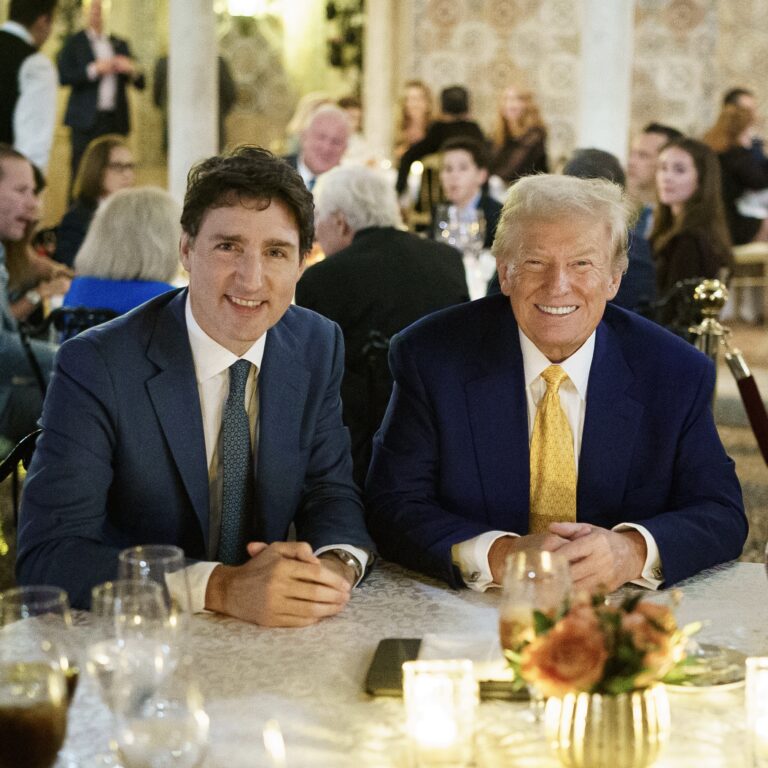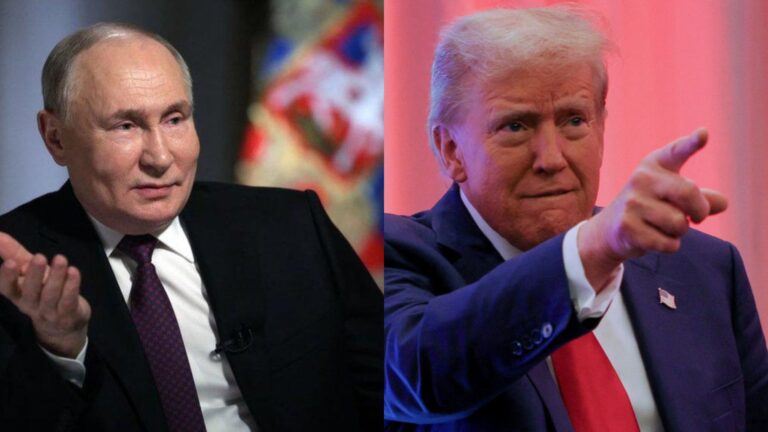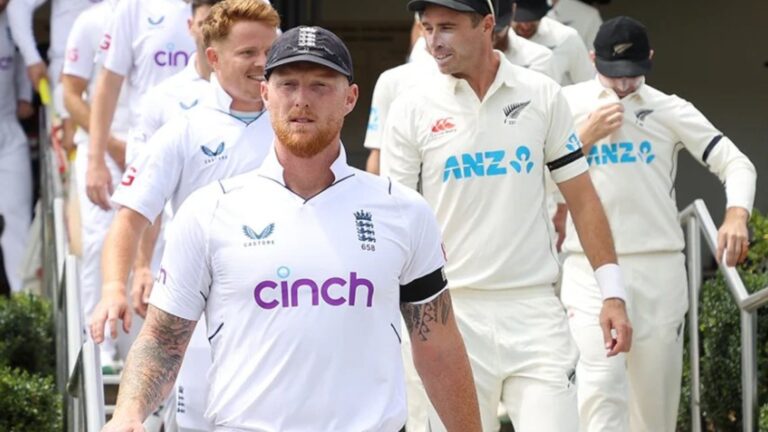
In 2024, the world was stunned by the actions of Karim Khan, the Chief Prosecutor of the International Criminal Court (ICC), following his request for an arrest warrant against Israeli Prime Minister Benjamin Netanyahu. The case, which stemmed from accusations of war crimes related to the ongoing Gaza conflict, ignited a firestorm of international controversy. But the story didn’t end there — Khan himself became embroiled in a separate scandal, leading to questions about the credibility of the ICC and the integrity of its leadership. This blog post will explore the sequence of events that led to the controversy, the global reactions, and the personal allegations against Khan that have cast a shadow over the international legal landscape.
Who is Karim Khan?
Karim Khan, a British lawyer, has been serving as the Chief Prosecutor at the ICC since 2021. The ICC, based in The Hague, is tasked with prosecuting individuals for crimes such as genocide, war crimes, and crimes against humanity. The court, established in 2002, is an independent institution with 124 member states. Notably, however, some powerful countries, including the United States, Israel, and India, are not members, which has led to ongoing debates about the ICC’s legitimacy and effectiveness in the eyes of certain global powers.
As Chief Prosecutor, Khan holds significant responsibility in pursuing justice for victims of international crimes. However, his tenure has recently been marked by controversy, primarily due to his involvement in the case against Netanyahu.
The Controversial Request for Netanyahu’s Arrest Warrant
The controversy began in October 2024, when Karim Khan requested an arrest warrant for Israeli Prime Minister Benjamin Netanyahu. The ICC’s investigation was centered around allegations that Netanyahu, along with other Israeli officials, had committed war crimes and genocide during the ongoing conflict with Gaza. The accusations specifically focused on the targeting of civilian infrastructure and the high civilian casualties resulting from Israeli airstrikes in the region.
Khan’s request to issue an arrest warrant was based on these charges, citing violations of international law. However, the move to prosecute a sitting world leader — especially one as prominent as Netanyahu — set off alarm bells across the international community.
Global Reactions: A Political Firestorm
Israel’s Response: A Fierce Rejection
Israel immediately rejected Khan’s request, with Prime Minister Netanyahu calling it a politically motivated action designed to undermine Israel’s sovereignty. Israel has long been critical of the ICC, claiming that the court has unfairly targeted the country while turning a blind eye to the actions of groups like Hamas.
Netanyahu also expressed concerns that an arrest warrant would severely limit his ability to travel internationally, potentially isolating Israel diplomatically. His government’s response was to accuse the ICC of bias, claiming that the court’s pursuit of an arrest warrant against a democratic nation like Israel, while simultaneously ignoring the actions of terrorist organizations like Hamas, was unjust.
U.S. Involvement: A Strong Stance Against the ICC
The U.S. government, led by President Joe Biden, also weighed in on the issue. While the U.S. is not a member of the ICC, it has historically maintained strong ties with Israel. In response to Khan’s request, the Biden administration issued a warning to the ICC, threatening sanctions if the arrest warrant against Netanyahu was pursued. The U.S. argued that the ICC’s efforts to equate Israel’s military operations with the actions of Hamas were an affront to justice.
U.S. officials emphasized Israel’s democratic values and its efforts to defend its citizens from terrorist attacks, painting the situation as one of self-defense rather than war crimes. The U.S. stance was clear: the ICC should not be meddling in issues related to Israel’s security policies.
European Reactions: Mixed Opinions
The European Union was divided on the issue. While some countries like Norway, Spain, and Ireland expressed support for the ICC’s jurisdiction, others, particularly nations with closer ties to Israel, chose to remain neutral or critical. Israel’s response was swift — it recalled its ambassadors from countries that supported the ICC’s actions, signaling a diplomatic backlash that further complicated the situation.
A Delay in the ICC’s Decision
The situation escalated on October 25, 2024, when one of the judges who had been perceived as sympathetic to the request for an arrest warrant was suddenly sent on leave. The timing raised suspicions of political maneuvering within the ICC, with critics suggesting that the delay in the decision was a tactic to avoid further controversy.
The replacement of the judge with a new one, seen by some as more neutral, only fueled concerns that political pressure was influencing the course of justice. As the legal proceedings dragged on, it became evident that the ICC’s handling of the case was becoming increasingly complicated, not only due to the political fallout but also because of the broader scrutiny surrounding Karim Khan.
The Allegations Against Karim Khan: A Personal Scandal
While the ICC was grappling with the Netanyahu case, a new scandal involving its Chief Prosecutor emerged. On October 27, 2024, reports surfaced that Karim Khan was under investigation for allegations of sexual misconduct. It was claimed that Khan had inappropriately touched a female subordinate, leading to an internal probe into his actions.
This development sent shockwaves through the legal community and cast doubt on Khan’s leadership. It seemed almost poetic that the individual responsible for prosecuting some of the world’s most powerful figures for international crimes was now facing accusations of misconduct himself. The irony of the situation was not lost on many, and it raised questions about the integrity of the ICC’s top official.
Also Read: Tensions Rise: Macron vs. Netanyahu – A Diplomatic Clash
The ICC’s Struggles: Political Pressure and Legal Challenges
The unfolding events surrounding Khan and the ICC reveal the complexities of international law, where legal proceedings are often entangled with political pressures. The ICC, while designed to be an independent institution, is not immune to the influence of global powers.
In this case, the United States and Israel exerted considerable pressure on the ICC, threatening sanctions and diplomatic consequences. On the other hand, the European Union’s mixed responses illustrated the complexities of aligning political interests with the pursuit of justice.
The allegations against Khan further complicate the ICC’s position. If the investigation into his misconduct proves credible, it will raise further questions about the legitimacy of his actions as Chief Prosecutor and, by extension, the integrity of the ICC itself.
Also Read: Drone Attack on Netanyahu’s Residence: A New Chapter in Middle Eastern Tensions
Conclusion: A Turning Point for the ICC?
The situation surrounding Karim Khan and the ICC’s investigation into Netanyahu marks a significant turning point in the institution’s history. As an international court that prides itself on holding individuals accountable for serious crimes, the ICC now finds itself under intense scrutiny, not just for its actions in the Netanyahu case, but also for the behavior of its Chief Prosecutor.
The ongoing investigation into Khan’s alleged misconduct adds a layer of complexity to an already politically charged situation, and it raises doubts about the court’s ability to operate without outside interference. As the world watches, it remains to be seen whether the ICC can navigate these challenges and maintain its credibility as a pillar of international justice, or if it will be caught in the crossfire of global politics and personal scandal.
Follow US




